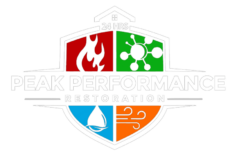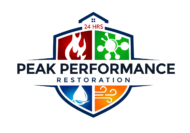When a sewage backup occurs in your home, it’s not just an inconvenience—it’s a serious health hazard. Sewage water is classified as Category 3 water, often referred to as “black water.” This type of water contains harmful bacteria, viruses, and parasites that can cause severe illnesses. Exposure to contaminated water, even for a short period, can lead to infections, respiratory issues, and other health complications.
Identifying the Causes of Sewage Backups
Sewage backups can happen for several reasons, and understanding these causes can help prevent future incidents. Common causes include:
- Clogged Pipes: When debris, grease, or non-flushable items obstruct pipes, it can lead to blockages that force sewage back into your home.
- Tree Root Intrusion: Tree roots can grow into your sewer lines, causing blockages and damage that result in backups.
- Aging Sewer Systems: Older homes with outdated plumbing systems are more susceptible to sewage backups due to wear and tear.
- Heavy Rainfall: Excessive rain can overwhelm sewer systems, especially if they are poorly maintained, leading to backups in homes.
Immediate Steps to Take After a Sewage Backup
Time is of the essence when dealing with a sewage backup. Immediate action can help minimize damage and reduce health risks. Here’s what you should do:
- Evacuate the Area: Keep everyone, including pets, away from the affected area to avoid exposure to harmful contaminants.
- Turn Off Water and Electricity: Shut off the water supply to prevent further sewage from entering your home, and turn off electricity in the affected area to avoid electrical hazards.
- Wear Protective Gear: If you need to enter the affected area, wear protective clothing, gloves, boots, and a mask to protect yourself from contaminants.
- Document the Damage: Take photos or videos of the damage for insurance purposes before any cleanup begins.
- Contact a Professional: Sewage cleanup is not a DIY task. Contact a professional sewage cleanup service to handle the situation safely and effectively.
The Importance of Professional Sewage Cleanup
Professional sewage cleanup services are equipped with the tools and expertise needed to thoroughly clean and disinfect your home. They follow strict protocols to remove contaminated water, clean and disinfect affected areas, and ensure that your home is safe for occupancy. Attempting to clean up sewage on your own can expose you to dangerous pathogens and may lead to incomplete cleaning, leaving behind hazardous residues.
Preventing Future Sewage Backups
Taking preventive measures can significantly reduce the risk of sewage backups in your home. Consider the following tips:
- Proper Disposal of Waste: Avoid flushing non-biodegradable items, grease, and large quantities of paper products down the toilet or drains.
- Regular Maintenance: Schedule regular inspections and maintenance of your plumbing system to identify and address potential issues before they become serious.
- Install a Backwater Valve: A backwater valve can prevent sewage from backing up into your home by automatically closing if water flow reverses in your sewer line.
- Be Mindful of Landscaping: Keep trees and shrubs away from sewer lines to prevent roots from causing blockages.
Health Risks Associated with Sewage Exposure
The health risks associated with sewage exposure are significant and can include:
- Gastrointestinal Infections: Pathogens in sewage can cause stomach illnesses, including diarrhea, vomiting, and cramps.
- Respiratory Issues: Inhaling fumes from sewage or mold growth resulting from a backup can lead to respiratory problems, especially in individuals with pre-existing conditions.
- Skin Infections: Direct contact with sewage-contaminated water can cause rashes, infections, and other skin irritations.
Long-Term Impact on Your Home
If not properly addressed, sewage backups can cause long-term damage to your home. The moisture from the sewage can lead to mold growth, which can spread throughout your home and compromise the structural integrity of walls, floors, and ceilings. Additionally, the lingering odor from sewage can be difficult to remove, affecting your home’s air quality and overall comfort.
Ensuring Your Home’s Safety After a Cleanup
After professional cleanup, it’s essential to take steps to ensure your home remains safe and healthy. This includes:
- Air Quality Testing: Consider having your home’s air quality tested to ensure no harmful pathogens or mold spores remain.
- Ongoing Monitoring: Keep an eye out for signs of mold growth or lingering odors that may indicate incomplete cleanup.
- Regular Inspections: Continue with regular plumbing inspections to catch any potential issues early.
Understanding the risks and proper response to sewage backups is crucial in protecting both your health and your home. By acting quickly and relying on professional help, you can effectively manage the situation and prevent future incidents.

